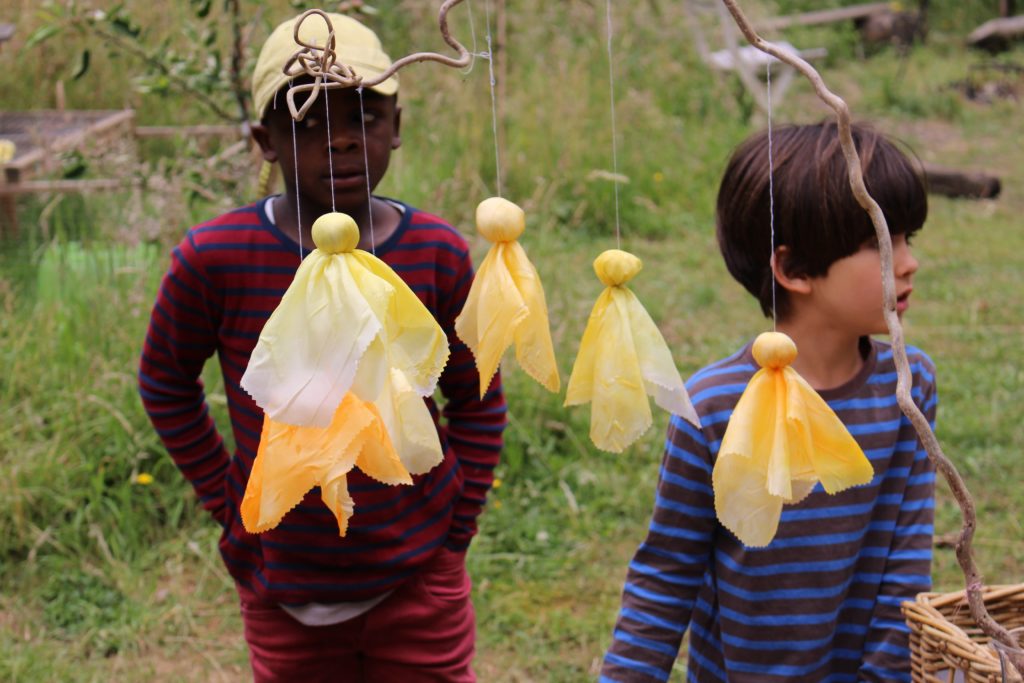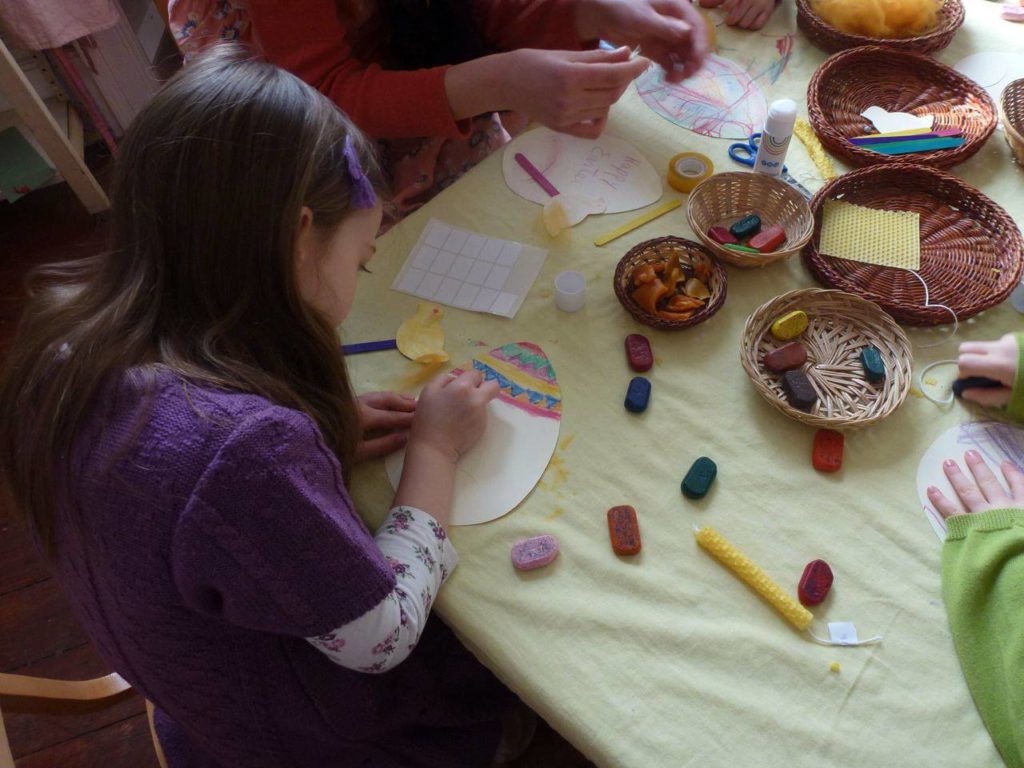A TEAFilms video
In Steiner Waldorf schools, like many educational systems in Europe, formal learning does not begin until the children are in their seventh year. The time when they naturally become ready for school is usually marked by the change of teeth. Before that, all of their life forces are needed to develop a strong, healthy body; to draw on these forces for intellectual work during the first seven years would be to compromise that development. “The child in the first seven years is wholly sense-organ, and reacts to all the impressions aroused in him by the people around him. Therefore the essential thing is not to imagine that the child can be taught what is good or bad, that he can be taught this or that, but to know that everything that is done in his presence is transformed in his childish organism into spirit, soul and body.” RUDOLF STEINER
“The child in the first seven years is wholly sense-organ, and reacts to all the impressions aroused in him by the people around him. Therefore the essential thing is not to imagine that the child can be taught what is good or bad, that he can be taught this or that, but to know that everything that is done in his presence is transformed in his childish organism into spirit, soul and body.” RUDOLF STEINER
 A clear daily, weekly and seasonal rhythm brings a sense of belonging and security, allowing each child to develop at his or her own pace. Then, about halfway through their seventh year, the children are usually ready to enter the Lower School.
A clear daily, weekly and seasonal rhythm brings a sense of belonging and security, allowing each child to develop at his or her own pace. Then, about halfway through their seventh year, the children are usually ready to enter the Lower School.
“In the beginning the child just plays, but he plays in earnest. There is only one difference between the play of the child and the work of the adult. It is that the adult adapts himself to the outer utility that the world demands; his work is determined from without. Play is determined from within, through the being of the child which wants to unfold. Up to now very little has been done to introduce the child in the right way to the complicated life of today. It is the task of the school gradually to lead him over from play into work. If we once find the answer to the question how can we metamorphose play into work, we shall have solved the fundamental problem of all early years education. Our basis ought to be the fact that the small child’s most ardent wish is to imitate the work of grown-up people, whether it is done with a spade or a knitting needle.” RUDOLF STEINER

